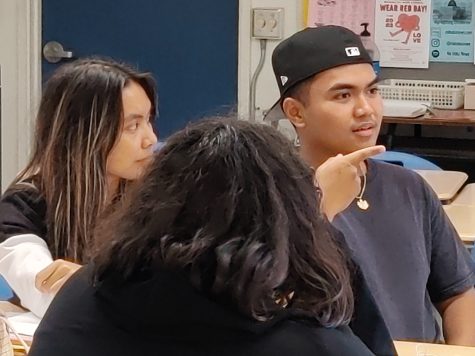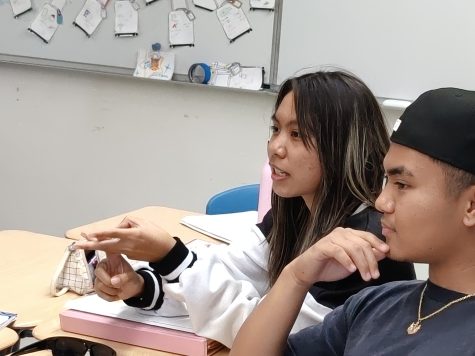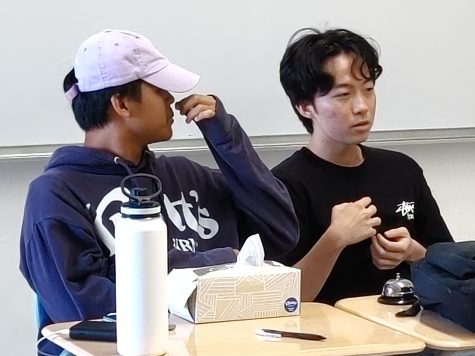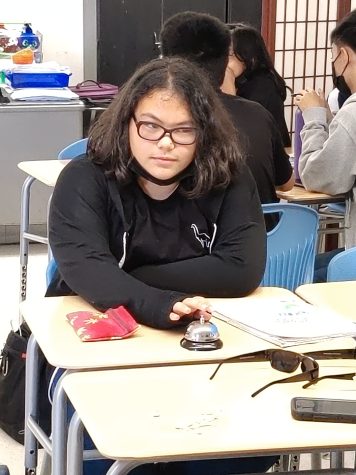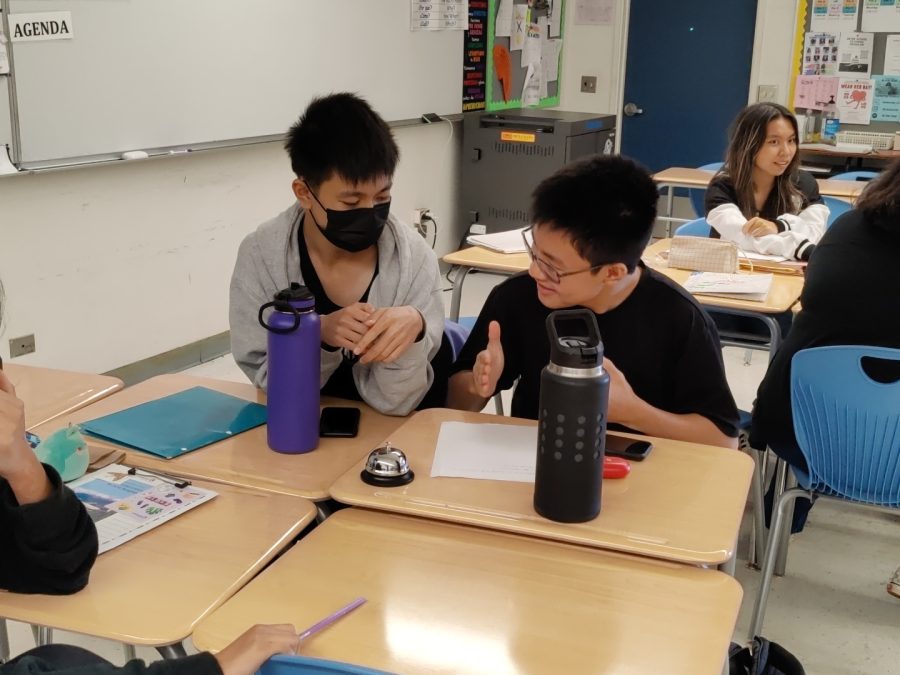Japan Wizards team hopes to conjure a win at upcoming contest
Freshman Jing Xuan Chen (left) listens as teammate Brycen Goo attempts to answer a question.
February 14, 2023
Quick. Name the top five Studio Ghibli movies. Name four of the national sports of Japan. Give the dates of the 2020 Tokyo Olympics. If you can do that, you, too, can be on the Moanalua Japan Wizards team.
Moanalua is sending four teams to the 20th annual state competition Feb. 25 at the University of Hawaii-Manoa. It will be the first in-person competition in three years.
The contest “tests your knowledge of Japanese language, culture, geography, and history,” freshman Mariko Holmberg said.
Holmberg is part of Team A with fellow freshmen Chevy Cadiente and Angelica Burguillos. Holmberg’s fast fingers were flying to hit the bell at a Feb. 10 practice. Count long, thin objects from 1-10. Correct. Name the last three prime ministers of Japan. Got that one, too.
Not to be outdone, senior Jacob Kong of Team B was able to name the most significant cultural festivals for more than a dozen of Japan’s 47 prefectures.
“I [learned] about this competition and that the prize was a trip to Japan from a friend of my older brother, so when Mrs. Tateyama invited me to join, I said yes,” he said.
Japanese language teachers Jaimelynn Tateyama and Toyoko O’Neil are the coaches, who read from a list of questions Tateyama has compiled over the years attending the competitions.
“There’s a lot of current events (on the list),” Tateyama said. “But generally the questions are broad.”
The school has two “A” teams entered–those with one or two years of language experience–and two “B” teams, who have three or more years of experience. Neither team can have parents who are native speakers.
The 12 students representing Moanalua have been studying and scrimmaging every week since November. O’Neil said the younger Team A students have been meeting and studying even more often–three times a week. She is proud of their hard work.
“[The students] didn’t know anything in the beginning [of the process],” O’Neil said. “Now, they can answer very complicated questions.”
Senior Titus Espanola, a four-year Japanese language student and Team B member, said the contest was another way for him to better understand the culture behind his lessons and become a more fluent speaker.
“I want to understand a language more than just English,” he said, “so when I go to Japan, I can communicate.”
Teammate and fellow senior Charlize Agag said she was on Team B last year and is back to try to win that trip to Japan this year.
“I liked the people I was working with and decided to join again this year,” she said.
The Japan-America Society of Hawaii was founded in 1976 to promote understanding and friendship between the people of Japan and the United States through the special and unique perspective of Hawaii.
